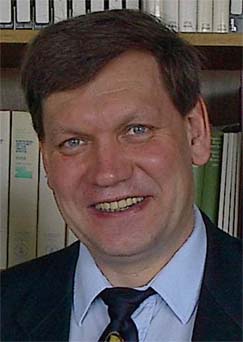Press Release: WATCH: "Human Longevity and a New Vision of Aging"
Greetings,
Recently Journalism.co.uk published Press Release about new video of our invited lecture in Canada:
'Human Longevity and a New Vision of Aging'
[ Lecture given by Leonid Gavrilov and Natalia Gavrilova at the 3rd Annual Conference of Canadian Association of Retired Persons (CARP) on Aging & Health ]
https://www.youtube.com/watch?v=3bVjgNsfJvI
Full text of this Press Release is published here:
http://www.journalism.co.uk/press-releases/watch--human-longevity-and-a-new-vision-of-aging-/s66/a553938/
Here are some excerpts:
--------------------------------------------------------
Recently Journalism.co.uk published Press Release about new video of our invited lecture in Canada:
'Human Longevity and a New Vision of Aging'
[ Lecture given by Leonid Gavrilov and Natalia Gavrilova at the 3rd Annual Conference of Canadian Association of Retired Persons (CARP) on Aging & Health ]
https://www.youtube.com/watch?v=3bVjgNsfJvI
Full text of this Press Release is published here:
http://www.journalism.co.uk/press-releases/watch--human-longevity-and-a-new-vision-of-aging-/s66/a553938/
Here are some excerpts:
--------------------------------------------------------
WATCH: "Human Longevity and a New Vision of
Aging"
Posted: 29 August 2013
We all want to live to 100, but what are the
chances? For Dr. Leonid Gavrilov and Dr. Natalia Gavrilova, this isn’t a
hypothetical question, but a topic that can be researched to bring
about a better understanding of how humans age, and even how we can live
longer.
Their new presentation, "Human Longevity and a
New Vision of Aging," has been filmed and released on YouTube for
anyone with an interest in living longer, or better understanding the
effects of aging, to view.
In it, Dr. Gavrilov says that it’s a myth
that “aging is just a problem for the elderly," as scientifically "aging
is a problem for everyone older than 10 years," as aging starts very
early and age-related death rates start to increase after the 10th
birthday. In fact, after the age of 10, every 10 years of life doubles
our mortality chances.
Because of this, "aging is a topic for everybody and everyone to be concerned about," said Dr. Gavrilov.
In order to study how to make humans live
longer, the two scientists decided to study "success stories" of aging:
centenarians, or people who have lived for 100 years or more. The first
question was: what was different between centenarians and their
shorter-lived siblings? These people were raised in the same families,
ate the same foods early in live, and shared other similar life
experiences. So what makes centenarians special?
Strangely, people born in November had a
higher chance of living to 100 than their shorter-lived siblings.
Perhaps less surprisingly, the researchers found that people born to
young mothers have twice as high chances to live to 100 than their
siblings born to mothers later in their lives. As Dr. Gavrilova
explained, their research leads them to "believe that not only the first
nine months, but also the early life conditions during childhood"
greatly shape life expectancy, propensity towards mortal diseases, and
other factors.
============================================
You can watch new video of this lecture 'Human Longevity and a New Vision of Aging' here:
https://www.youtube.com/watch?v=3bVjgNsfJvI
=============================================



1 Comments:
I would be interested in the technology in development today such as nano-tech, MEMS, enzyme systems... that can be used to actively remove the buildup of metabolic poisons and re-root the molecules of DNA genes. Potentially removing any limit to longevity beyond starvation or accident.
I'm a layperson, and have only seen various articles in these regards.
The average age of a person in the U.S. in 1900 was near 35 years old, this has more than doubled by 2000. Given the advances in technology, and lesser so in medicine, the life span can realistically double again by 2100 to be 150 years old.
But at some point, we most likely will produce technologies that provide far greater life spans. How will we be able to feed a useful but growing population?
Space-based expansion, evolving into more efficient life forms such as computer-like systems, ... and other evolution.
Building Universes of our own designs to seed with a growing population (there is a potential pathway).
But for what overall purpose? We are a destructive species thinking no further than the end of our spears; our next meal.
Post a Comment
<< Home